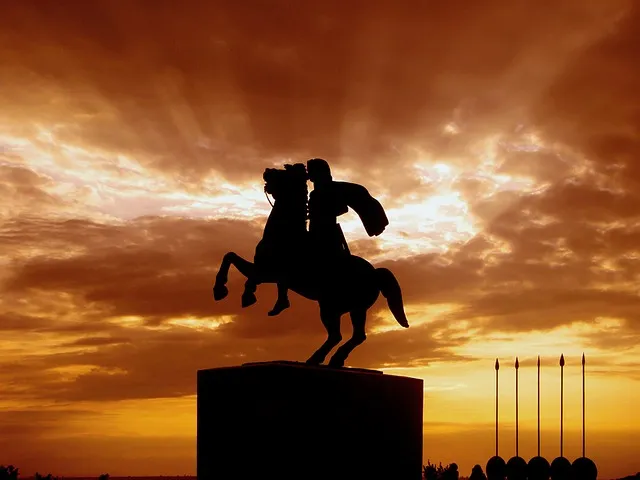The armies of Alexander the Great (356-323 BCE) marched south to the Indus River, which they arrived at in the summer of 327, from their winter camp in the Hindu Kush (the mountainous frontiers of contemporary Afghanistan and Pakistan). Alexander encountered resistance from highland tribal fighters in the Khyber Pass, close to Aornos. They set their camp on a threatening plateau that rose to a height of around 7,000 feet. These havens appeared impregnable and were undoubtedly impregnable to any typical siege. Alexander used a ravine that was 800 feet deep to gain access to the plateau's north face while also mounting his catapults on the fill. By night, Alexander mounted the cliff with the help of 30 soldiers. Then he moved aside so the men might "honor" themselves by becoming the first to attack the insurgent position. However, the rebels killed all 30 guys by throwing stones at them. Alexander waited until the third night before realizing that the rebels believed they had vanquished him when he heard the victory drums. He picked this precise moment to launch a devastating surprise attack. Alexander continued down the Indus valley after his victory.
The Punjab ruler Porus, who ruled in the fourth century BCE and had some 35,000 soldiers, was his next foe. In May 326 B.C.E., Alexan-der engaged him in combat along the Hydaspes River. Once more, it appeared impossible to overcome the natural hurdles. Around 200 ferocious elephants were ordered by Porus as the river raged and flooded. In defiance of the raja, Alexander erected his camp across the river. He created a camp routine and purposefully avoided showing any evidence of attack preparation. After a few days, Porus and his troops began to let their guard down. Alexander escaped with only 11,000 of his 20,000 soldiers after leaving the majority of his army behind in camp. In a stunning two-pronged attack, he bravely crossed the raging river and vanquished Porus's chariots. He then attacked the elephants with infantry, who used axes to fight the animals. Porus, who had been defeated, had such admiration for Alexander's prowess that he had voluntarily agreed to act as his guide along the rest of the Indus.
Alexander was eager to continue his conquering effort and turned away from the Beas River, an Indus River tributary in northwest India, after the battle. However, after being absent from home for so long, his army rebelled in July (see ALEXANDER'S ARMY, THE JULY MUTINY OF. Alexander turned around and defeated and subdued the Malli people on route home.
Knowledge is power...
